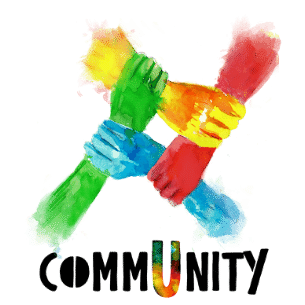Identity
Identity & Identity Building
The definition of identity is who you are, the way you think about yourself, how you are seen by the world, and the characteristics that define you. Identity development is a lifelong process that starts in the early stages of childhood. Toddlers learn “I, me, mine” words very early on, pre-schoolers can express their physical attributes, preferences and competencies, and school-age children can discuss their feelings and how they relate to their social world. Physical, cognitive, and social changes in young adults help them define their personality traits and attitudes, and new abstract reasoning abilities allow them to think about the future and experiment with different identities (Erikson, 1968).
Although young adolescents are often committed to a particular identity without exploring alternatives, for example due to parental ideas and beliefs, this phase is often followed by a more active exploration of multiple aspects of their identity such as religious beliefs, political convictions, social roles, morals, and values. Identity achievement happens when young adults have explored their identity and committed to it.
Identity exploration and identity achievement are important because they are associated with higher self-esteem, increased critical thinking, and advanced moral reasoning (Marcia, 1991). Unfortunately, not all adolescents are encouraged to explore their identities or encounter difficulties in the process due to dual ethnic or dual national identities, lack of support from home, or a missing parent. These challenges can create an obstacle in the identity development process and lead to a lack of self-esteem and a sense of belonging.
Identity Building through Arts-Based Activities
Since the 1990s, a growing body of research and articles has evidenced the power of the created arts in engaging and reshaping the harmful behaviour of youth (Wallace-DiGarbo & Hill, 2006).
For example, as explained in Cheri Sterman’s article ‘Art as Personal Identity Narratives: Visual Gateways to Exploring Self and Others’, art projects are well-suited to strengthening youth’s social-emotional learning and creating personal identity narratives that help them understand both themselves and others. It allows young people to see, shape and reshape their own identity through a new lens and then share it with others; it is a reflective process that influences an individual’s confidence and behaviour (Sterman, 2016). The opportunity for reflection changes how young people see themselves and who they want to become in the future.
With their imaginative nature, the arts activities enable youth to move away from the here and now, transcend time and current situation, and envision themselves in new ways (Sterman, 2016).
Besides the artistic aspect of arts-based activities, the cultural and often historical nature of the arts allows young people to explore other cultures, religions, habits and lifestyles that can influence the way they look at the world and themselves. Cultural and artistic activities can impact young people’s sense of self, well-being, confidence, critical thinking skills, behaviour, and sense of belonging.
The Role of the CommUnity Project in Identity Building
In the CommUnity Project, we reached and continue to reach young adults through culture and arts-based activities and give them the opportunity to explore their identity. Through the arts-based activities, participants reveal their personal values, aspirations, purpose and even their personal stories, increasing their confidence and sense of belonging. In this way, the CommUnity seeks to build resilience against radical narratives that convince youngsters with a radical and sometimes violent identity.
Watch the knowledge clip! 👉 https://www.thecommunityproject.eu/the-knowledge-clips/
